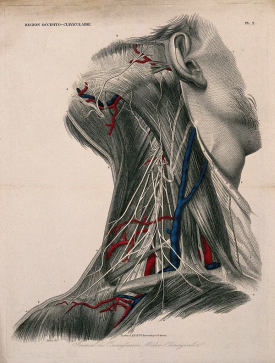Migraine Surgery: Why does it fail?
A recent review at Cureus Journal of Medical Science took a look at the success and failure of a certain type of surgery for migraine. One of the key questions was – why does migraine surgery fail?

At first, the statistics in the report look pretty good. Up to 80% of patients experienced “complete elimination of headaches”. Naturally, we should be suspicious of that “up to”. But also, remember that this is going to be a very specific group of migraine sufferers, those who were already likely to benefit from this type of surgery.
This type of surgery for chronic migraine sufferers focuses on trigger points, which may be different for each patient. The surgery works by relieving irritation to certain nerves, or by blocking pain signals from certain locations.
These are patients who have also tried other treatments, because surgery comes with its own risks and downsides.
But back to the study. The researchers also found that “up to” 35% of patients had no relief. So let’s say about 30% of surgeries failed. That’s a lot of time, trouble, and money for no result – especially considering that these patients have (hopefully) tried several other treatments already.
Why did the surgeries fail? It’s hard to tell from this review alone, but researchers found some common reasons:
- The trigger points were not all dealt with. This could mean that the surgeon simply hadn’t detected all the problem areas, or that the surgery did not successfully relieve them.
- Migraine headache was triggered from new trigger points after the surgery, or it was triggered again from the old trigger points (the success of the surgery was temporary?).
- For an unknown reason, the surgery simply did not relieve the migraine attacks.
There is only so much you can do about #3, because it’s unknown. The second point is tricky as well, because we may not know ahead of time how the body will respond to the surgery.
To a certain extent, the first point can be addressed by finding a specialist with considerable experience in migraine surgery – a specialist who will take the time that is needed to get the surgery right.
But all that being said, it still seems to be common wisdom to find a good specialist and investigate other treatments before trying surgery. The search for a good treatment will likely take time – don’t expect a “cure” in two months. Being patient and going to an experienced headache specialist in the first place will greatly increase your chances of success.
Read more about this study here: The Efficacy of Trigger Site Surgery in the Elimination of Chronic Migraine Headache: An Update in the Rate of Success and Failure (pdf)
